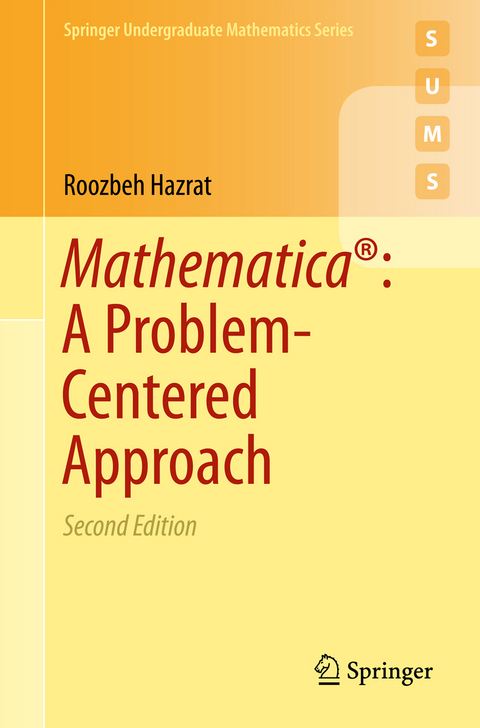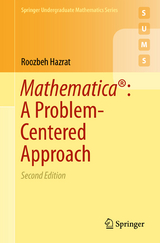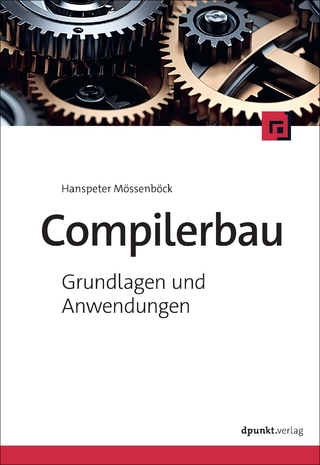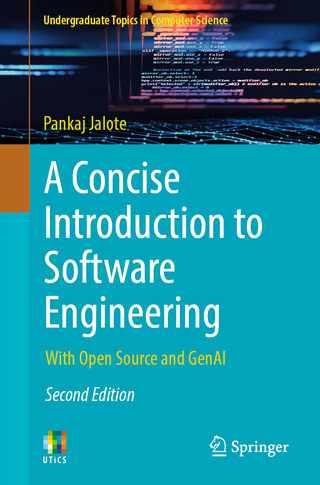Mathematica®: A Problem-Centered Approach
Springer International Publishing (Verlag)
978-3-319-27584-0 (ISBN)
This textbook introduces the vast array of features and powerful mathematical functions of Mathematica using a multitude of clearly presented examples and worked-out problems. Each section starts with a description of a new topic and some basic examples. The author then demonstrates the use of new commands through three categories of problems
- the first category highlights those essential parts of the text that demonstrate the use of new commands in Mathematica whilst solving each problem presented;
- the second comprises problems that further demonstrate the use of commands previously introduced to tackle different situations; and
- the third presents more challenging problems for further study.
The intention is to enable the reader to learn from the codes, thus avoiding long and exhausting explanations.
While based on a computer algebra course taught to undergraduate students of mathematics, science, engineering and finance, the book also includes chapters on calculus and solving equations, and graphics, thus covering all the basic topics in Mathematica. With its strong focus upon programming and problem solving, and an emphasis on using numerical problems that do not need any particular background in mathematics, this book is also ideal for self-study and as an introduction to researchers who wish to use Mathematica as a computational tool.
This new edition has been extensively revised and updated, and includes new chapters with problems and worked examples.
Roozbeh Hazrat obtained his PhD in Pure Mathematics from the University of Bielefeld, Germany in 2002. He did research at the Australian National University, the Max Planck Institute in Bonn and the City University of New York. He was a Reader (Associate Professor) in Pure Mathematics at Queen's University Belfast, United Kingdom, where he worked for 8 years, before moving to Western Sydney University in December 2011. In 2015 he was awarded a Fellowship for Experienced Researchers by Germany's Alexander von Humboldt Foundation.
Introduction.- Basics.- Defining functions.- Lists.- Changing heads!.- A bit of logic and set theory.- Sums and products.- Loops and repetitions.- Substitutions, Mathematica rules.- Pattern matching.- Functions with multiple definitions.- Recursive functions.- Linear algebra.- Graphics.- Calculus and equations.- Worked out projects.- Projects.- Solutions to the Exercises.- Further reading.- Bibliography.- Index.
"The aim of this introduction to Mathematica is to teach Mathematica's abilities and how to program it to solve problems. ... this book provides a great basis for an undergraduate course teaching how to use Mathematica. The book can certainly also be used for self-study without taking a course, and its style ensures that reading it will never be boring. After finishing the course or the book, it may serve as a reference ... ." (Thomas Kahle, zbMATH 1345.68001, 2016)
| Erscheinungsdatum | 08.10.2016 |
|---|---|
| Reihe/Serie | Springer Undergraduate Mathematics Series |
| Zusatzinfo | XXI, 318 p. 164 illus., 139 illus. in color. |
| Verlagsort | Cham |
| Sprache | englisch |
| Maße | 155 x 235 mm |
| Themenwelt | Informatik ► Theorie / Studium ► Compilerbau |
| Mathematik / Informatik ► Mathematik ► Computerprogramme / Computeralgebra | |
| Schlagworte | Computer Science • General Mathematics • mathematical software • Number Theory • programming • Programming languages, compilers, interpreters • symbolic and algebraic manipulation • Symbolic Computation • Wolfram Language |
| ISBN-10 | 3-319-27584-4 / 3319275844 |
| ISBN-13 | 978-3-319-27584-0 / 9783319275840 |
| Zustand | Neuware |
| Informationen gemäß Produktsicherheitsverordnung (GPSR) | |
| Haben Sie eine Frage zum Produkt? |
aus dem Bereich




